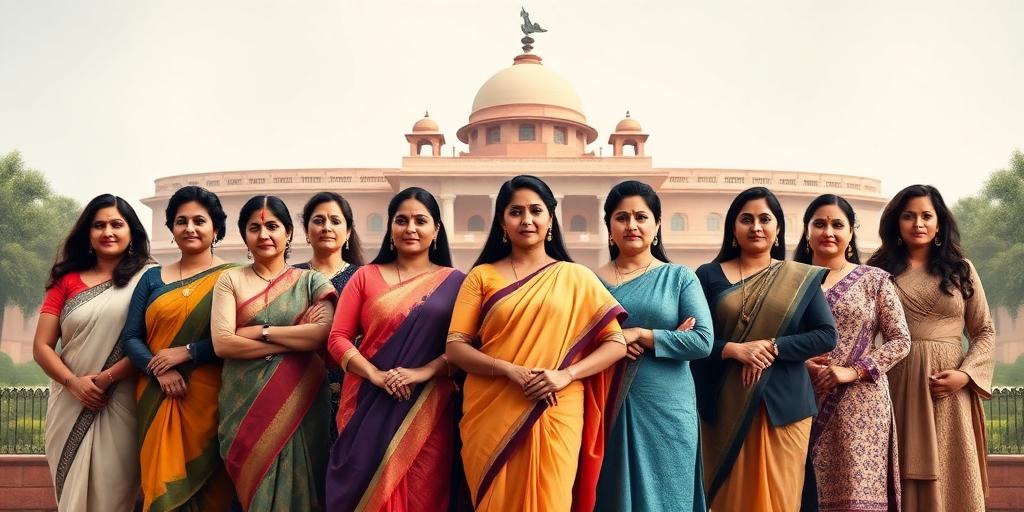Indian politics, a vibrant and complex tapestry, has witnessed a gradual yet undeniable evolution in the role and representation of women. From the foundational struggles for independence to the modern-day legislative battles, women have consistently sought and often secured their place in the nation’s governance. This article critically examines the significant progress achieved by women in Indian politics while simultaneously shedding light on the formidable challenges that continue to impede their full and equitable participation.
The Arc of Progress: Milestones and Achievements
The journey of women in Indian politics is marked by several commendable achievements. Post-independence, India notably produced one of the world's first female heads of government, Indira Gandhi, whose leadership spanned over a decade and left an indelible mark on the nation's political landscape. Beyond this iconic figure, numerous women have excelled in various capacities, serving as Chief Ministers, Union Ministers, Speakers of Parliament, and Governors, demonstrating their capability and commitment to public service.
Crucially, the 73rd and 74th Constitutional Amendment Acts of 1992 stand as monumental reforms, mandating one-third reservation for women in Panchayati Raj Institutions (local self-governments) and urban local bodies. This legislative move has democratized political participation at the grassroots level, bringing over 1.4 million elected women representatives into the fold. This unprecedented empowerment has not only fostered local leadership but has also catalyzed development initiatives directly addressing community needs, thereby significantly impacting the lives of ordinary citizens. The increased participation of women in Indian government at the local level has transformed governance by ensuring a more inclusive decision-making process.
Furthermore, the rising educational attainment and economic empowerment of women have indirectly contributed to their political assertiveness. Media visibility and growing awareness campaigns have also played a role in challenging traditional gender roles, encouraging more women to enter public life and aspire for leadership positions, thereby strengthening gender equality in Indian political leadership.
Persistent Challenges: Hurdles to Full Representation
Despite the notable strides, the path for women in Indian politics remains fraught with significant challenges. The most glaring issue is their severe underrepresentation at higher echelons of power. In the national Parliament (Lok Sabha), the percentage of women MPs, while increasing, still hovers significantly below the global average, falling far short of a truly representative democracy. A similar, if not more acute, situation prevails in State Legislative Assemblies.
Societal barriers represent a deep-rooted impediment. Patriarchal norms and traditional gender stereotypes often relegate women to domestic roles, discouraging their political ambitions. The perception that politics is a male domain, coupled with concerns about safety and security, creates an unwelcoming environment for aspiring women politicians. This cultural resistance directly impacts the challenges for women politicians India faces.
Political parties themselves often contribute to this disparity. The allocation of tickets to women candidates remains disproportionately low, particularly in winnable constituencies. Internal party structures can be exclusionary, making it difficult for women to rise through the ranks and gain influence. The financial burden of contesting elections is another significant barrier, as women often have limited access to resources and funding compared to their male counterparts.
Moreover, women in politics frequently encounter character assassination, sexism, and gender-based violence, both online and offline. The pressure to conform to specific societal expectations, coupled with intense media scrutiny often focused on their appearance or personal lives rather than policy, adds another layer of complexity to their political careers. These systemic issues demand urgent attention to truly empower women in Indian democracy.
Paving the Way Forward: Towards Inclusive Governance
Addressing these challenges requires a multi-pronged approach. The long-pending Women's Reservation Bill, proposing a 33% reservation for women in the Lok Sabha and State Assemblies, is a critical legislative step that could fundamentally alter the political landscape. Its implementation would ensure a guaranteed minimum representation, acting as a catalyst for broader change.
Beyond legislation, there is a crucial need for cultural transformation. Education, public awareness campaigns, and media portrayals that challenge stereotypes can foster a more conducive environment for women in politics. Political parties must actively commit to gender inclusivity, developing internal policies that support and promote women candidates, providing training, and ensuring equitable resource distribution.
Furthermore, grassroots empowerment initiatives must continue to be strengthened, building a robust pipeline of women leaders from local bodies upwards. Support networks, mentorship programs, and legal aid for women facing harassment can also play a vital role in encouraging and retaining women in public life. Embracing the full role of women in India's political landscape is not merely a matter of fairness but a strategic imperative for a more just, inclusive, and effective democracy.
Conclusion
The narrative of women in Indian politics is a compelling tale of resilience, progress, and persistent struggle. While significant milestones have been achieved, particularly at the local governance level, the journey towards full and equitable representation at state and national levels is far from complete. Overcoming the deep-seated societal, structural, and political challenges necessitates concerted efforts from all stakeholders—legislators, political parties, civil society, and the public. Empowering women in politics is not just about gender parity; it is about enriching India's democracy with diverse perspectives, enhanced accountability, and more inclusive governance outcomes, ultimately leading to a more prosperous and equitable nation.









